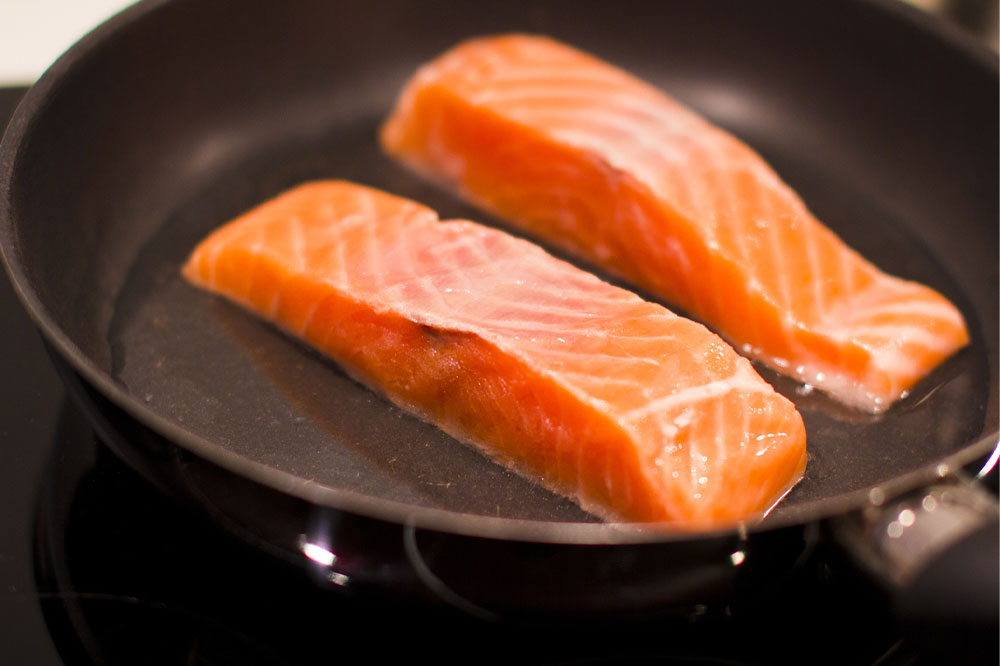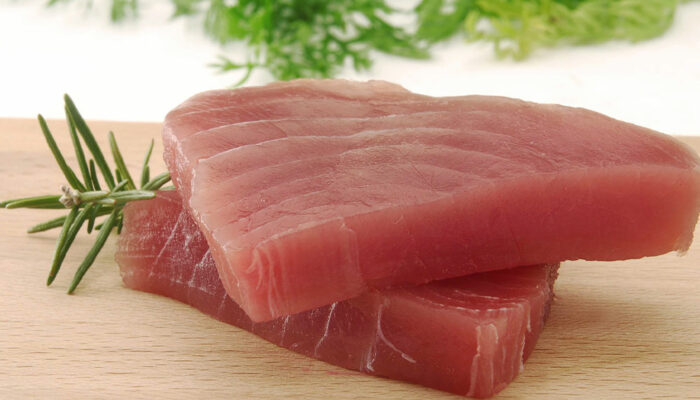7 foods that are better for heart health

Studies have established that a poor meal regimen is the leading cause of cardiovascular diseases, type 2 diabetes, obesity, and other fatal conditions. However, eating healthy foods is not the only cornerstone to preventing and reducing mortality relating to heart conditions. Other factors such as a regular exercise routine and maintaining a reduced stress level can help, too. Here are some of the foods that are excellent for heart health:
- Salmon
Among the category of fatty fish, salmon contains the maximum omega-3 fatty acids. Salmon is a type of unsaturated fatty acid that substantially reduces inflammation all through the body and decreases damage to the heart and blood vessels. Research has also pointed out that seafood reduces the likelihood of heart failure. An adult is advised to take two servings (approximately 3.5-4 ounces) of omega-3-rich fish per week for better heart health.
For non-fish eaters, the best option would be to consume fish oil in the form of supplements to get the daily dose of omega-3 fatty acids. However, it is essential to be mindful of how the salmon is cooked. To reap the optimum health benefit, one should ensure not to deep fry the fish. Try different flavors, like garlic, as it is a superfood and is also linked to better heart health. - Oatmeal
Oatmeal is made of soluble, which easily dissolves in water and breaks the indigestible food into a gel-like substance in the colon region. Soluble fibers also lower fat absorption and cholesterol. It helps in weight management and stabilizes blood glucose levels. Moreover, it reduces the risk of cardiovascular disease. A bowl of oatmeal is all it takes for a healthy heart to start the day. Oatmeal, in addition, also contains omega-3 fatty acids, which betters heart health. However, ensure to use fat-free or low-fat milk for maximum benefit. - Blueberries
Blueberries are considered the best superfood for major diseases like breast, colon, lung, prostate, stomach cancer, and cardiovascular diseases. It contains a large amount of antioxidant and anti-inflammatory properties. The anthocyanin in blueberries is an antioxidant that protects the body against oxidative stress and inflammation, one of the major causes of heart disease.
In addition, it is replete with phytonutrients, with a combination of beta-carotene, lutein, and ellagic acid—all responsible for lowering cholesterol and blood pressure levels. In addition, they also fight against free radicals. Eating blueberries daily also improves the efficient functioning of the cells and blood vessels and prevents blood clotting. Other berries like strawberry, raspberry, and blackberries are also rich in nutrient value, but there are no beating blueberries. It would also be wise to avoid canned berries and opt for fresh ones. Topping blueberries to a bowl of oats could save a person from a lot of health trouble. - Avocado
Avocado has a rich source of monosaturated fats, which reduces cholesterol levels and lowers the risk of heart disease. Research conducted on 45 people showed the efficacy of avocado. The group was divided into two, and one group was asked to make avocado daily while the other was not. The group that took avocado every day reported a reduction in LDL cholesterol (bad cholesterol), which is directly linked to the risk of heart disease. In addition, the lipid-lowering abilities of avocados have also been demonstrated in several other studies.
Avocadoes are also high on potassium, which is an essential nutrient for a healthy heart. Consuming 5 grams of potassium per day can decrease blood pressure by an average of 8.0/4/1 mmHg, which, in turn, lowers the risk of stroke by 15%, according to a study. - Seeds
Seed sources like chia seeds, hemp seeds, and flax seeds are high in fiber and omega-3 fatty acids. They control inflammation of the body, blood pressure, cholesterol, and triglycerides and also improve heart condition. Arginine, an amino acid, has been associated with relaxing blood vessels and improving circulation. Studies have also pointed out that arginine enhances blood flow in the arteries. Hemp seeds are known to be high in arginine. On the other hand, flaxseeds keep both blood pressure and cholesterol levels under control. Chia seeds are known to boost beneficial cholesterol (HDL). - Dark chocolate
Moderate consumption of dark chocolate, around 5-6 servings per week, has a substantial chance of reducing the risk of coronary heart disease, diabetes, and stroke. In addition, skin health also improves significantly. Ensure to buy high-quality dark chocolate containing at least 70% of cocoa. - Almonds
They are known for their high levels of monosaturated fats and fiber, which help reduce belly fat and bad cholesterol, thereby maintaining a healthy heart.
The US Department of Agriculture (USDA) has also issued a visual guide to a healthy meal plan. The pictorial guide states that a meal should consist of:
- Whole fruits which have to be consumed first
- Vegetables that need to vary every day
- Grains out of which 50% have to be whole grains
- Protein that needs to change every day
- Fat-free or low-fat milk or yogurt
So, these are some of the foods that can help improve and manage heart conditions. However, before adopting any meal plan, it would be wise to consult a doctor or nutritionist, as everyone’s body and condition could differ.



